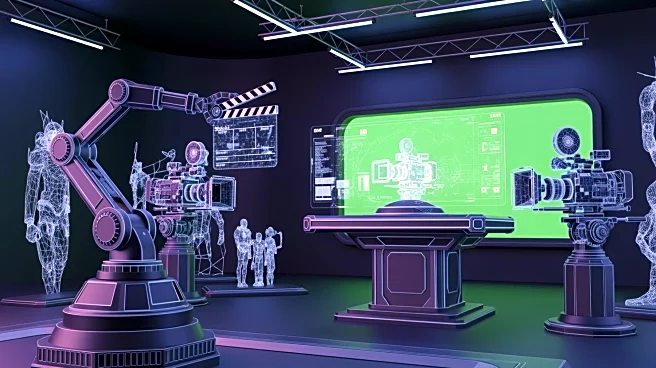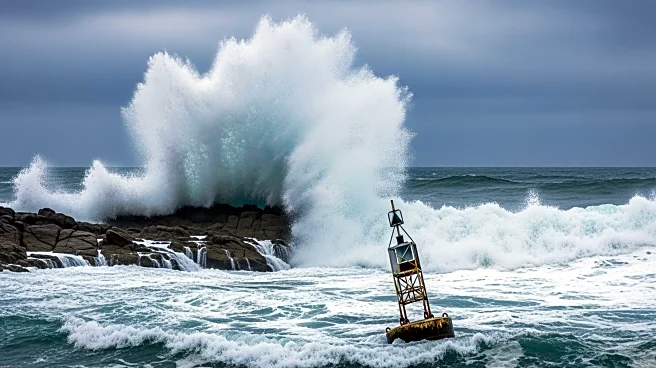What's Happening?
Hollywood studios are increasingly integrating artificial intelligence (AI) into their production processes, aiming to replace traditional CGI and reduce time spent in makeup. The Creative Artists Agency
(CAA) has developed the CAAVault, a system that digitally clones actors, capturing their movements, emotions, and vocal inflections. This technology allows actors to appear in various digital formats, such as video games and virtual platforms, without being physically present. Additionally, companies like Deep Voodoo are using AI to create realistic deep fakes and de-aging effects, which can significantly cut down on production costs and time. The AI boom in Hollywood is further exemplified by Google's Veo 3 AI generator, which can produce video content more efficiently than traditional methods.
Why It's Important?
The adoption of AI in Hollywood has significant implications for the entertainment industry. It offers cost-effective solutions for content creation, potentially reducing the need for extensive CGI and makeup, which can be time-consuming and expensive. This technological shift could lead to new job opportunities in AI artistry, although it also raises concerns about the potential displacement of traditional roles such as makeup artists and visual effects specialists. Moreover, the ethical considerations of using AI to replicate human likenesses are prompting discussions about intellectual property rights and the value of human performance. As AI becomes more prevalent, it could redefine the creative process and the economic landscape of the film industry.
What's Next?
As AI technology continues to evolve, Hollywood studios and talent agencies are likely to expand their use of digital cloning and AI-generated content. This could lead to further negotiations with unions like SAG-AFTRA, which are concerned about the implications for human performers. The industry may also see increased investment in AI research and development to enhance the realism and ethical use of digital likenesses. Additionally, as AI tools become more accessible, independent filmmakers might leverage these technologies to produce high-quality content with limited resources, potentially democratizing the filmmaking process.
Beyond the Headlines
The integration of AI in Hollywood raises broader ethical and cultural questions. The ability to digitally clone actors and create lifelike deep fakes challenges traditional notions of authenticity and performance. It also poses legal challenges regarding the ownership and licensing of digital likenesses. As AI-generated content becomes more common, there may be a shift in audience expectations and perceptions of what constitutes a genuine performance. Furthermore, the industry's approach to AI could influence other sectors, such as advertising and gaming, where digital representations of individuals are increasingly used.










